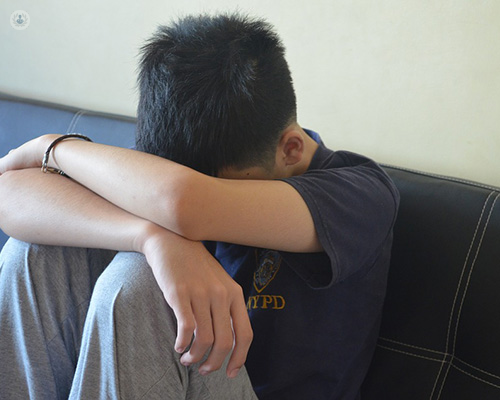

What is bullying?
Bullying refers to the psychological, physical or verbal abuse that most typically occurs between students, both in the classroom and in social networks (cyber bullying) – although it can also occur between adults and in the workplace. Bullying often occurs over an extended period of time rather than as a one-off occasion. Those affected are usually boys and girls of preadolescent age, who can suffer emotional consequences for a large part of their lives.

Some forms of bullying exercised by the aggressor or aggressors to their victim are social exclusion, ridiculing, threatening, assault, harassment or coercion.
What are the symptoms of bullying?
The victim of bullying will feel the emotional consequences of harassment and verbal or physical aggression. They may feel sad, nervous, scared and lonely, thus affecting their social relationships. Because of this situation, their school performance may also be affected and the child will not want to go to school. In some cases the affected may even experience suicidal thoughts.
What are the causes of bullying?
The aggressor may not have serious personality disorder, but often presents some psychopathology, such as the total absence of empathy or the distortion of reality. In many cases the aggressor has a difficult home life or has their own difficulties to deal with, and bullying others may be a coping mechanism for them.
The school environment also influences bullying and so, it is important that schools work to reduce instances of bullying.
Prevention of bullying
It is difficult to prevent bullying in children and adolescents, but a key factor is based on education and the educational environment. Promoting respect and empathy among students and teachers alike is important, as well as avoiding harassment and exclusion of any student.
It is also very important that parents promote values that do not encourage the bullying and harassment of others.
Treatment of bullying
The victim may require psychological therapy to overcome the negative effects that the bullying causes, along with advice and encouragement in being able to combat it and how to continue with their school life. In cases where self-harm or suicidal thoughts are present, psychiatric help and pharmacological treatment may be used. It is possible that the victim of bullying needs therapy from a psychologist long after the event itself, as the trauma may persist for many years.
The aggressor themselves may also need psychological therapy in order to confront the issues that they are facing and to help them assess their own behaviour.
